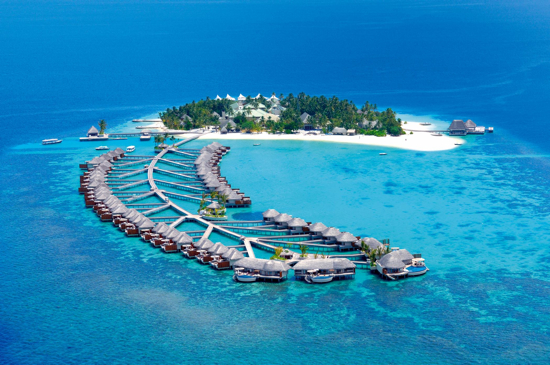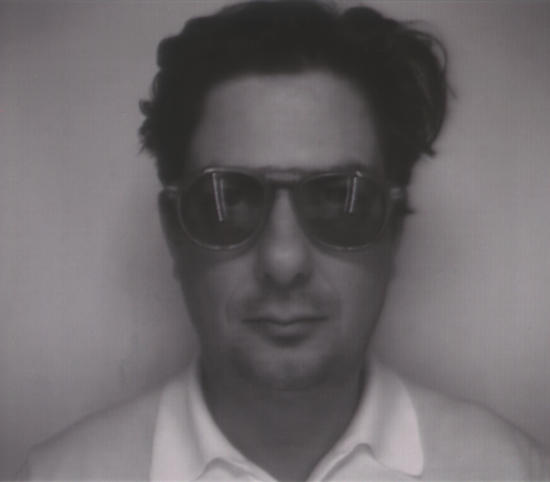Through a cynic’s monocle it looked like the most subversive piece of product placement to emerge from a marketing executive’s Moleskine. Independent filmmakers were given the funds to make their scripts into 10-minute shorts, produced by Roman Coppola, son of Francis Ford – the only catch being that this was a sponsored competition. All the scripts submitted had to feature a certain brand of PC, and had to be set inside a certain hotel chain. As Coppola told the Quietus: "The main constraints – or ‘challenges’ – to work with were that because it was sponsored by W Hotels and Intel, the shorts all had to feature the hotel as well as feature the computer."
The winning entries that made up Four Stories were unveiled at a media event at the Prince Charles Cinema on Tuesday November 27. Perhaps to add weight to the ensemble, definitely to plug his own full-length picture A Glimpse Inside the Mind of Charles Swan III (scheduled for a February release in the USA; UK date is tbc), Coppola pitched in with a fifth short, which frankly made a mockery of the title.
Four Stories now comprised a quintet, or "a five film quartet", as compère for the night Mark Kermode put it. The addition of Kermode was something of a coup for the organisers, as without him the hastily arranged competition might have ponged even more of a glorified advertising campaign. In his introduction, the acerbic film critic was quick to sing the praises of the exquisite Intel Ultrabook and the palatial wonder of W Hotels’ global abodes. The shorts themselves were a mixed bag, ranging from polished love story-cum-advert to polished holiday ramble-cum-advert.
The hotel aspect wasn’t overly rammed down the viewer’s throat – lots of movies are set in hotels, after all. Directed by Lee Toland Krieger, Modern/Love had more than a whiff of Lost in Translation, but without the effortless charm of Bill Murray, or indeed a storyline that lifted its head above the Bacardi Breezer ad parapet for more than a second. Good-looking bloke meets girl in an internet chat room (that’s the Intel Ultrabook bit – in shops now, just £649); coyness, flirting and emoticons aplenty ensue.
Lake Bell’s El Tonto! was sort of like Napoleon Dynamite meets Nacho Libre: a touching bromance between awkward nerd and strapping wrestler. This lighter offering paid little heed to the sponsors, its comedic palette sitting easier with the concept than the opener, while a language barrier (wrestler only speaks Spanish, nerd only speaks English) helped exude the quirky feel of a silent short.
Spencer Susser’s Eugene was the most faithful to its paymasters, and could have been an outtake from The Hangover. Michael Govier’s superfast Intel Ultrabook has a welcome glitch: a genie that grants the beardy introvert (like a budget Zach Galifianakis) whatever he desires. After he’s bored himself with all the man-child commodities one can handle, he realises how futile the ownership of possessions really is, and with the genie’s power summons the leggy brunette who blanked him in the corridor earlier. Cue baffling twist which resolves nothing.
The wistful cinematography of The Mirror Between Us was negated by the film’s excessively high production values, its narrative being a soft-focus hotchpotch which could have worked with a more indie treatment. It ended up going nowhere, certainly not as far as the stunning backdrop of the Maldives (W Hotels has beautiful hotels all over the globe – book now). As shallow as the islands’ crystal blue waters this may have been, but director Kahlil Joseph was certainly shrewd in picking his location.

Coppola’s finale, albeit tacked on, was the best of the bunch. The light touch of experience punctuated the vampire gore of Die Again, Undead One. As a slightly embarrassed send-up of the whole sordid contest, he perhaps over-egged the saccharine ironies that were the constant plugs for his upcoming feature.
The winning films were picked from more than 1000 entries, Coppola conceding: "There were a handful of entries that had similar ideas in that when you’re dealing with a computer in a hotel, there’s only so many places you can go. It was done very cheaply and we did it very quickly. We did it all over the world but there were challenges with regard to shooting in settings where there was very little film community."
That the winners lacked any real originality was no accident, a fact that put into sharp focus the flaws of the competition. "Some of the more interesting ideas were not suitable for our schedule and our budget," noted the producer. "There were some pretty wild ones that deserve an honourable mention because they were very unusual, but unfortunately, due to their unusual nature, were unsuitable to film."
Which says a lot about the concept, being that the real stars were made of bricks and mortar: "We wanted to show an array of hotels that are part of the W collection, so that was part of the inspiration as well as the directors’ interest."
Four Stories can be viewed online here.


